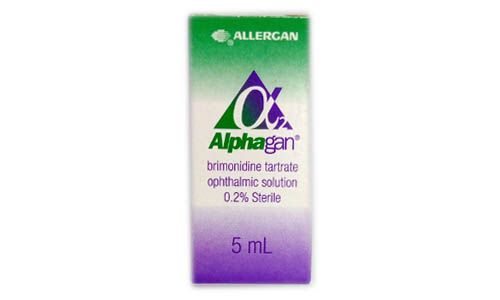ALPHAGAN EYE DROPS
Irfan Traders exporter of Alphagan eye drops at affordable & competitive rates. Alphagan (brimonidine tartrate) Ophthalmic Solution is an antiglaucoma medication used to treat open-angle glaucoma or ocular hypertension (high pressure inside the eye).
Description
Alphagan Eye Drops
Alphagan eye drops is a brand name for an ophthalmic solution that contains the active ingredient brimonidine tartrate. This medication is primarily used to treat increased intraocular pressure (IOP) conditions in the eyes, such as glaucoma or ocular hypertension. In this detailed description, we will explore various aspects of Alphagan drops, including their mechanism of action, indications, dosage, administration, potential side effects, and precautions.
1. Mechanism of Action of Alphagan eye drops:
Alphagan eye drops belong to a class of medications known as alpha-2 adrenergic agonists. The active ingredient, brimonidine, acts by stimulating alpha-2 adrenergic receptors in the ciliary body of the eye.
This results in a reduction of aqueous humor production, leading to a decrease in intraocular pressure. By modulating the fluid dynamics within the eye, Alphagan helps prevent damage to the optic nerve and vision loss associated with elevated intraocular pressure.
2. Indications while taking Alphagan eye drops:
Alphagan eye drops are primarily prescribed for the management of open-angle glaucoma or ocular hypertension. Open-angle glaucoma is a chronic condition characterized by increased intraocular pressure, potentially causing damage to the optic nerve and resulting in gradual vision loss.
Ocular hypertension is elevated intraocular pressure without optic nerve damage or visual field loss.
3. Dosage and Administration while taking Alphagan Eye Drops:
The typical dosage of Alphagan may vary based on the severity of the condition and individual patient response. However, a common starting dose is one drop of Alphagan 0.1% or 0.15% in the affected eye(s) twice daily, approximately 12 hours apart.
The 0.1% and 0.15% refer to the concentration of brimonidine tartrate in the solution. Following the prescribing physician’s instructions regarding dosage and administration is essential.
When instilling the eye drops, patients are advised to tilt their head backward, pull down the lower eyelid to create a small pocket and administer the prescribed number of drops into the eye.
After administering the drops, patients should keep their eyes closed for a short period and apply gentle pressure to the inner corner of the eye to prevent the medication from draining into the tear duct.
4. Potential Side Effects of Alphagan eye drops:
While Alphagan is generally well-tolerated, like any medication, it may cause side effects in some individuals. Common side effects include ocular hyperemia (red eyes), ocular allergy, and ocular burning or stinging upon instillation.
Other possible side effects may include blurred vision, dry mouth, fatigue, and headache. Patients experiencing severe or persistent side effects should contact their healthcare provider promptly.
5. Precautions:
Before using Alphagan eye drops, patients should inform their healthcare provider of any existing medical conditions, allergies, or medications they are taking. It is crucial to disclose a history of cardiovascular disease, depression, or severe allergic reactions.
Pregnant or breastfeeding individuals should consult their healthcare provider before using Alphagan, as the potential risks to the fetus or infant should be weighed against the therapeutic benefits.
Contact lens wearers should remove their lenses before instilling Alphagan and wait at least 15 minutes before reinserting them to avoid potential interactions.
Additionally, patients should be cautious when driving or operating machinery, as Alphagan may cause drowsiness or dizziness.
6. Interactions:
Alphagan may interact with certain medications, including other alpha-2 adrenergic agonists, beta-blockers, tricyclic antidepressants, and monoamine oxidase inhibitors (MAOIs).
Combining Alphagan with these medications can lead to increased side effects or reduced efficacy. Therefore, it is crucial to inform the healthcare provider of all medications being taken.
7. Overdose:
In the event of an overdose, individuals may experience symptoms such as decreased blood pressure, low heart rate, and drowsiness. If an overdose is suspected, immediate medical attention is necessary.
8. Storage:
Alphagan eye drops should be stored at room temperature, away from moisture and heat. The bottle should be tightly closed when not in use, and patients should avoid touching the dropper tip to prevent contamination.
9. Conclusion:
Alphagan eye drops play a crucial role in the management of conditions associated with elevated intraocular pressure, such as glaucoma and ocular hypertension.
By modulating the fluid dynamics within the eye, Alphagan helps reduce the risk of optic nerve damage and vision loss. As with any medication, patients need to follow their healthcare provider’s instructions carefully, report any side effects promptly, and attend regular follow-up appointments to monitor the effectiveness of the treatment.






Reviews
There are no reviews yet.